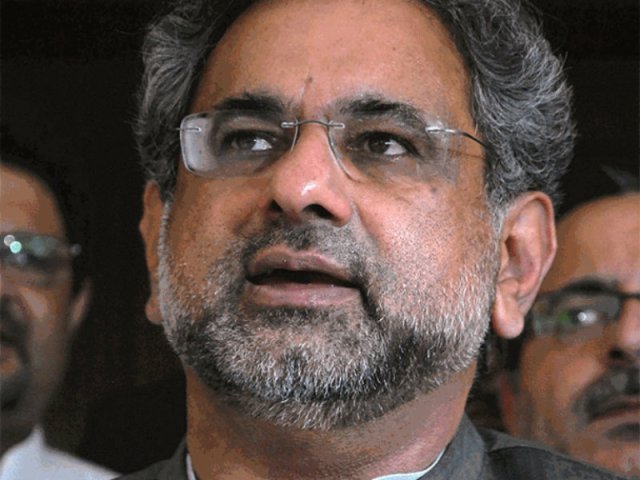The election on Tuesday came after a Supreme Court decision last week disqualified Nawaz Sharif, his predecessor, over allegations he lied on a wealth declaration.
Abbasi, who belongs to the ruling Pakistan Muslim League (PML-N) party, was elected after a vote by members of the National Assembly, the lower house of parliament.
The ruling PML-N holds a comfortable majority in the lower house, and Abbasi's election was considered a foregone conclusion ahead of the vote. Several smaller parties also supported Abbasi's election in the vote, results showed.
"Shahid Khaqan Abbasi is declared to have been elected as the prime minister of the Islamic Republic of Pakistan," said Ayaz Sadiq, the speaker of the house, announcing the results to raucous cheers from the ruling party's lawmakers.
Abbasi bagged 221 votes to win the election, while the PPP's Syed Naveed Qamar secured 47 votes, Awami Muslim League chief Sheikh Rashid received 33 votes, and four MNAs voted for Jamaat-i-Islami's Sahibzada Tariqullah.
The newly-elected prime minister ─ who is to be in power for about 45 days in line with the PML-N's strategy ─ promised to take action against "private militias" providing security to citizens.
Following the Supreme Court’s verdict, the PML-N had agreed upon Abbasi, the former petroleum minister, as its candidate for interim prime minister. He is expected to give way for Shahbaz Sharif, who is likely to compete for the seat lying vacant following the ouster of his elder brother.
Shahbaz will likely seek election to the National Assembly from Nawaz Sharif's constituency, which is a PML-N stronghold. As part of the agreed-on course of action, he will also have to forego his seat in the Punjab Assembly and his successor will need to be chosen.
Regardless of who is prime minister, however, Nawaz's influence will likely remain strong on the government’s policies.
/106

